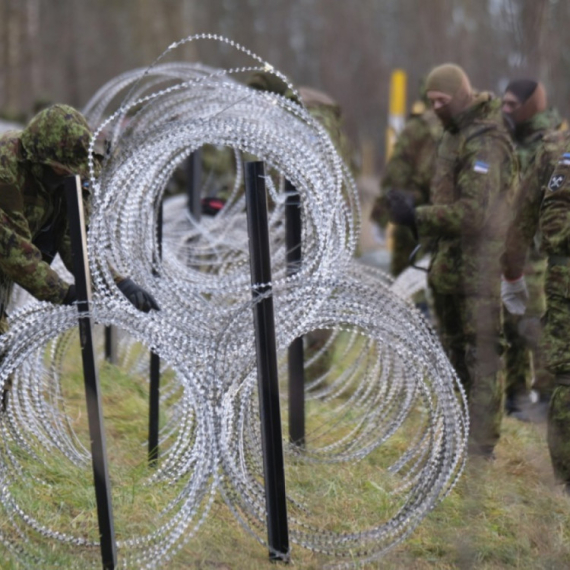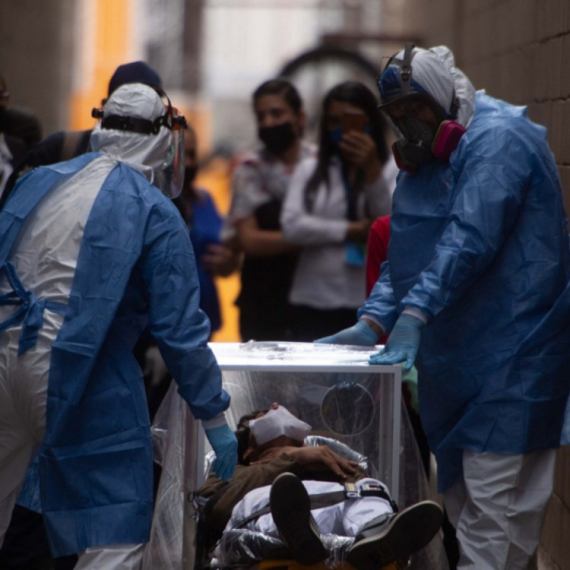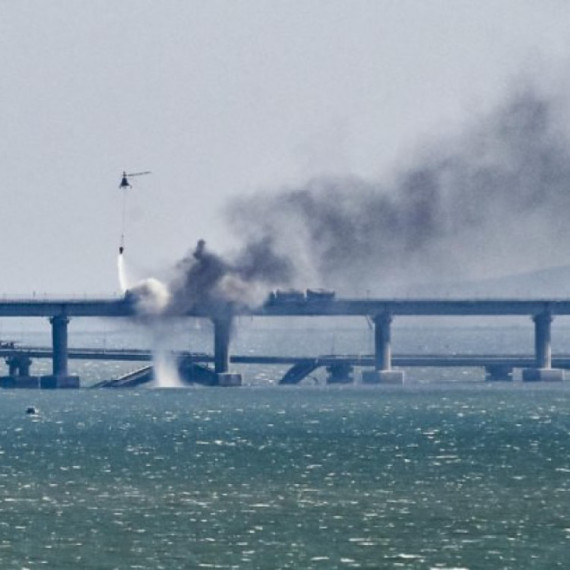ETA says fight for independence will continue
Basque separatist group ETA is determined to fight on for independence from Spain, according to a latest statement.
Sunday, 30.09.2007.
13:05

Basque separatist group ETA is determined to fight on for independence from Spain, according to a latest statement. On Sunday, ETA called on activists to take to the streets to support that goal. ETA, which has waged a violent campaign for a separate nation since the late 1960s, sent the statement to Zutabe, a magazine the group has frequently used as a mouthpiece. Excerpts from the statement were also published in Basque newspaper Gara. ETA says fight for independence will continue The statement said ETA could only see two ways forward, political negotiation toward self-determination or to continue fighting. ETA would be prepared to return to a cease-fire should a political solution be found, the statement said. "Only when political parties seal a decisive political accord would the political conditions exist for us to restart a negotiation process and for ETA to activate its commitment to a cease-fire," the statement said. ETA said the Spanish government led by Prime Minister Jose Luis Rodriguez Zapatero had shown "zero will" to arrive at "minimum conditions" for a negotiated solution to the Basque separatist issue. As a consequence, ETA had decided to "open all its fronts" and it called on Basques "to fight and to focus on the road to the creation of a Basque state." "Popular reaction, street fighting and mobilization is of paramount importance," the statement said. In recent years, ETA supporters have used street violence in Basque cities and towns, including throwing molotov cocktails to burn out bank branches, cash machines and buildings, and bus hijackings. A Spanish government-led peace process to try to end the conflict collapsed when ETA called off a 15-month cease-fire in June and resumed attacks on Aug. 24 with a powerful car bombing outside a police station and barracks in the northern city of Durango, slightly injuring two officers. The peace process was already considered to be over well before the June announcement when an ETA bombing destroyed a parking garage at Madrid's airport Dec. 30, killing two people. After the attack, ETA said the cease-fire was still in effect despite the government's announcement that it was ending its involvement in the peace process. ETA has killed 800 people in its quest for an independent Basque homeland in parts of northeastern Spain and southwestern France. On Friday, the president of the semiautonomous Basque region called for a referendum. Juan Jose Ibarretxe, a moderate nationalist, said the nonbinding referendum set for Oct. 25, 2008 would explore two issues: rejection of ETA violence and the right of the Basque people to choose their future. Ibarretxe did not specify the exact words to be used in the referendum. Zapatero, speaking during a visit to Russia, said his government would use legal channels to reject it if it were found to be unconstitutional.
ETA says fight for independence will continue
The statement said ETA could only see two ways forward, political negotiation toward self-determination or to continue fighting.ETA would be prepared to return to a cease-fire should a political solution be found, the statement said.
"Only when political parties seal a decisive political accord would the political conditions exist for us to restart a negotiation process and for ETA to activate its commitment to a cease-fire," the statement said.
ETA said the Spanish government led by Prime Minister Jose Luis Rodriguez Zapatero had shown "zero will" to arrive at "minimum conditions" for a negotiated solution to the Basque separatist issue.
As a consequence, ETA had decided to "open all its fronts" and it called on Basques "to fight and to focus on the road to the creation of a Basque state."
"Popular reaction, street fighting and mobilization is of paramount importance," the statement said.
In recent years, ETA supporters have used street violence in Basque cities and towns, including throwing molotov cocktails to burn out bank branches, cash machines and buildings, and bus hijackings.
A Spanish government-led peace process to try to end the conflict collapsed when ETA called off a 15-month cease-fire in June and resumed attacks on Aug. 24 with a powerful car bombing outside a police station and barracks in the northern city of Durango, slightly injuring two officers.
The peace process was already considered to be over well before the June announcement when an ETA bombing destroyed a parking garage at Madrid's airport Dec. 30, killing two people. After the attack, ETA said the cease-fire was still in effect despite the government's announcement that it was ending its involvement in the peace process.
ETA has killed 800 people in its quest for an independent Basque homeland in parts of northeastern Spain and southwestern France.
On Friday, the president of the semiautonomous Basque region called for a referendum.
Juan Jose Ibarretxe, a moderate nationalist, said the nonbinding referendum set for Oct. 25, 2008 would explore two issues: rejection of ETA violence and the right of the Basque people to choose their future.
Ibarretxe did not specify the exact words to be used in the referendum.
Zapatero, speaking during a visit to Russia, said his government would use legal channels to reject it if it were found to be unconstitutional.




















































Komentari 1
Pogledaj komentare